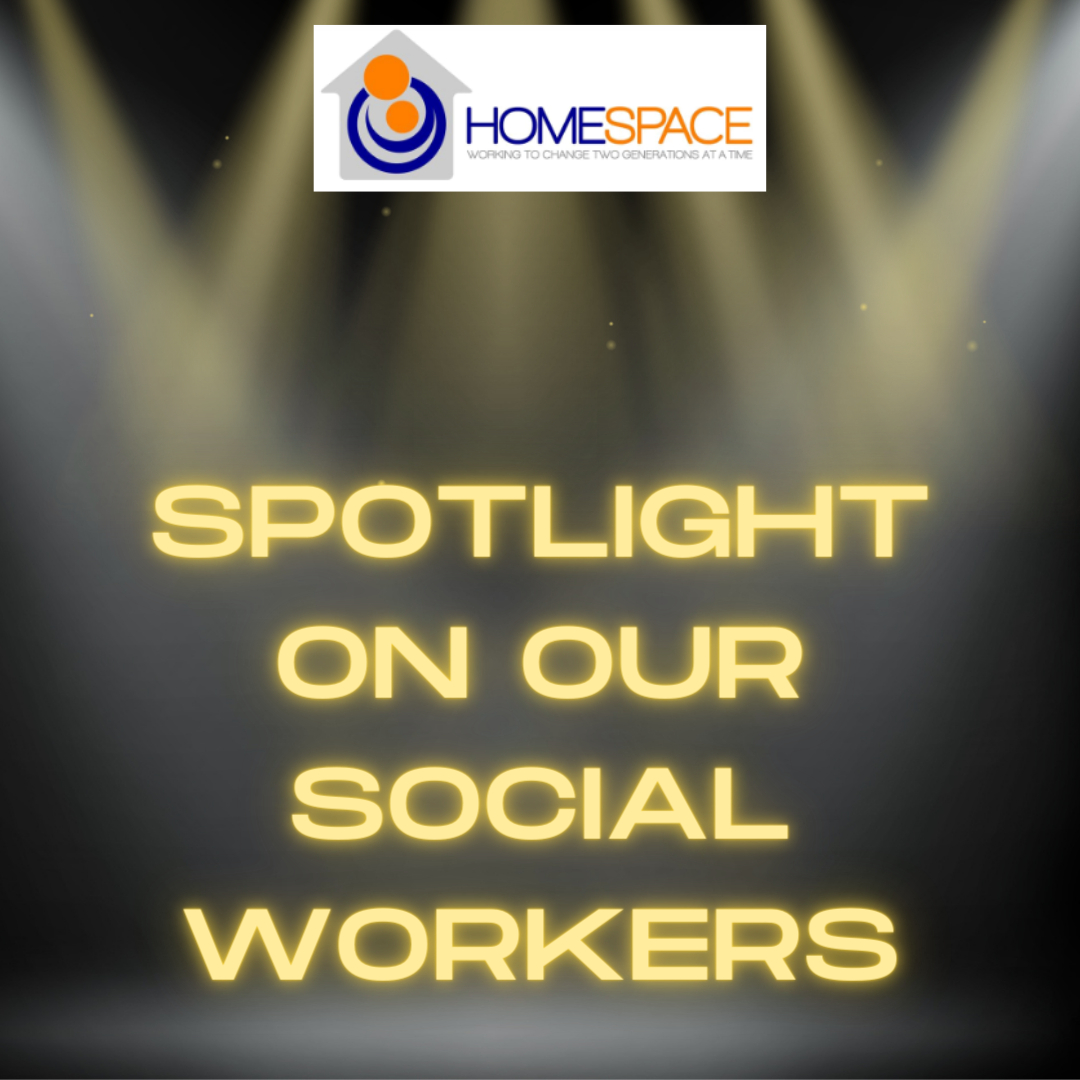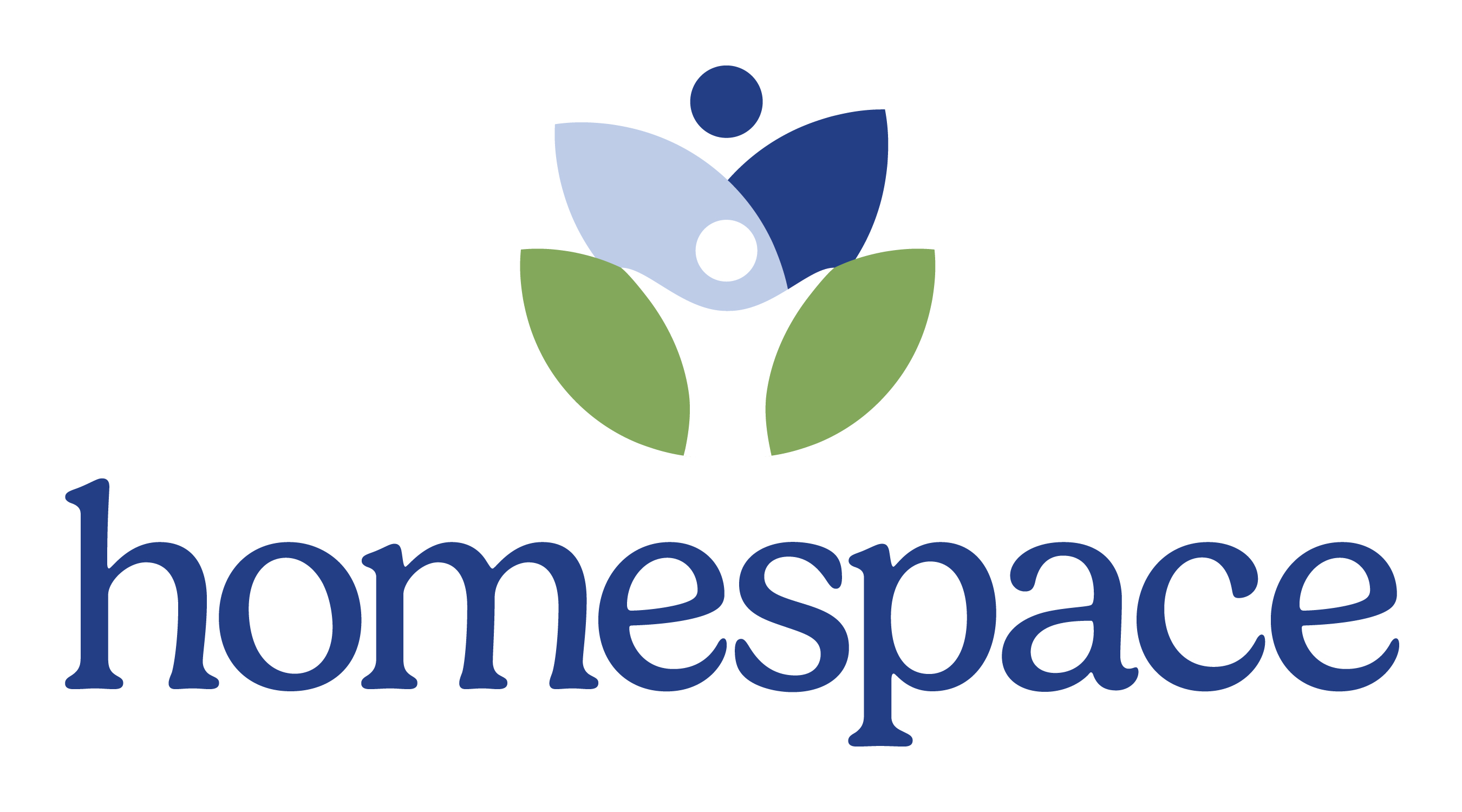Spotlight on our Social Workers

March is national social work month, and we at Homespace wanted to take the opportunity to spotlight some of our social workers on staff here: how and why they became social workers, and what they had to say about the field of work which they are so passionate about. We are fortunate enough to have a fantastic group of caring and passionate individuals here who help our young people every day. Read below to see what they had to say, you might learn something.
First, meet the social workers:
AINSLIE EVANS: Behavioral Health Counselor, LMSW. Fun fact: I am a closeted artist. I love painting, when I can.
ADIJA ALMOND: Behavioral Health Counselor LMSW. Fun fact: I am a die-hard Beyonce fan.
ALEXANDRA KRAFT: Y-Prep independent Living Trainer, working toward a BSW. Fun fact: I am planning my wedding for next year.
KATY COOPER: Director of Services, LMHC. Fun fact: I have my own private practice.
BRENDA PRYOR: Clinical Supervisor at SILP, BSW. Fun fact: I was a sergeant in the army
Q: Why did you go into this field?
A:
Alexandra: Growing up, I had always wanted to be a teacher. I really liked science and astronomy, but when I got to college I realized I hated calculus, so that wasn’t going to work out for me. Then, during the COVID-19 pandemic, I learned so much about Black Lives Matter, and I really wanted to help. I became passionate about black history, and I questioned why I never learned that in school? That’s just not right. I also always loved true crime, I have a bit of a social justice streak, so I wanted to put that energy toward something.
Brenda: I was actually in the army, and I wasn’t feeling very fulfilled by the job I had. One day I was waiting in a line to speak to the military social worker after a deployment, and the wait was so long! Well while in line, the man in front of me started telling me all his problems that he wasn’t going to tell the social worker we were in line for. When I was listening to his story and giving him advice, I thought – wow, this is it. This is what I want to do with my life. When I finally made it through the line and sat in the social worker’s office, I asked her: How can I get your job?
Katy: I really just wanted to help people. I’m a listener, you know, I’m a helper. I enjoy focusing on one on one, individualized help.
Adija: I have always wanted to help people. In high school I took several aptitude tests that always pointed me toward becoming a psychologist. So, I majored in psych with minors criminal justice, sociology and philosophy. I actually talked to a LMHC before I made the decision for social work. I really like to do different things, and develop new skills all the time, and a mentor I had at the time was working at OCFS and told me that based on my interests, I should go into social work.
Ainslie: I never knew what I wanted to be when I grew up, so I went broad for undergrad. I studied psychology, business, environmental studies, and I had zero plans after graduating. I was able to get a job in special education alternative high school, which I enjoyed, but I wanted to have more of an impact than working one on one with students, and that sent me to social work.
Q: What is your favorite thing about social work?
A:
Katy: Making an impact – any sort of impact, even if it’s something small. Having former clients come back to me, and telling me they learned something, or used a tool that I gave them.
Ainslie: “I genuinely enjoy hearing people’s stories. I like connecting with people from different backgrounds, and to learn and grow from it. Every once in a while, it’s nice to feel like you make an impact. A client recently wrote me a letter of appreciation, and it really touched me. Being able to create that healing space for someone is what drives me.”
Alexandra: I like that it’s so broad. Growing up, I always thought of “social workers” as strictly CPS workers, but that’s not the case. With a social work background you can be a lobbyist and go work with politicians, you can work with kids, whoever – it’s so broad.
Adija: I love to learn people. Learning the “why” and “how” to who a person is, is so intriguing to me. There’s so much to people and how complex we are, if you really think about it. But, that is also the hardest part. Because with teens and trauma, that adds to their layers. I love it when someone says to me, I had so much on my mind before we talked, and now I just feel lighter.
Brenda: The diversity of the field, you can go down so many career paths you have no idea. Like there’s alcohol and substance abuse, therapy, military, government. The training and skills can be so well-rounded.
Q: What advice would you give a young person interested in a career in social work?
A:
Brenda: Do it! It’s important work. I don’t ever feel unfulfilled, it’s so fulfilling. There’s always someone to help.
Katy: Don’t set out to save the world. Sometimes a client makes progress and then there’s backslides, that’s perfectly normal. If you made someone smile…you’re doing something right. It took me 12 years in the field to really grasp that, but it’s just the truth.
Adija: Small impacts make a difference. You’re going to be underpaid, but that’s okay (with a chuckle). You can work but still live normal life, without it being consumed. Remember self-care.
Ainslie: Take care of yourself. You don’t have to be perfect in order to help others. It can be what you make it, and there’s more flexibility than a 9-5 job.
Alexandra: It is very important to keep your work and home life separate. Burnout is real. Get yourself your own counselor.
Q: Why should we celebrate social work month?
A:
Ainslie: We need to bring awareness to how far we’ve come as a field, and how far we still have to go. There is a lot of stigma behind social work and what we do (which is historically warranted!), but the field has made progress in recent years. Demand is high for this position, we need more people in this field.
Brenda: This is a job people don’t realize is a necessity, and mental health is just as important as physical health. Maybe when you think of a social worker you picture someone sitting behind a desk, but actually there are so many people with boots on the ground. Policies in government are so important! You want to change the world? Be a social worker in politics. If a social worker went into politics, they would absolutely have the best understanding of what the community actually needs, and how exactly to get it.
Adija: There is a lack of diversity in the social work field. We need more men as well as people of color within the field. People do not know the depth of social work and the various career paths that can be taken with this degree
Alexandra: To bring more people into the field, there’s a huge shortage and at the same time, a growing field.
Katy: In order to bring awareness to mental health, and all the providers that are out there that are dedicated to help people that are struggling…and they don’t have to do it alone.
Q: What brought you to Homespace?
A:
Ainslie: I was working with a consultant for the company and would do presentations here, and what I liked about Homespace is that it is small, family oriented, and that I could work with adolescents. The (CFTSS) program was new and I liked thinking that I could be a part of its development. Working at Homespace gives me the chance to work with people more in depth, rather than just seeing a client here and there. There are so many activities and celebrations that bring staff and residents together and the fact they have the mother-baby group home is very unique, nobody else has that around here.
Adija: I actually had a family member who lived at Homespace. I learned and did research about Homespace after hearing about it and thought, wow, who would have known! I loved that it was a smaller program, really tight-knit, with flexibility. I can have a life! Working in traditional foster care is 9-5 job, I really prefer the flexibility in my schedule that Homespace can offer me. I also felt like seeing kids once a month just wasn’t enough for me. Here I get to have more one-on-one time with them to make more of an impact.
Alexandra: I was looking for a new job when a classmate of mine suggested Homespace and when I saw how they help youth, it was really interesting to me. I thought it would be a unique experience to have.
Brenda: I was presented this opportunity through my schooling at Daemen. I started as the Y-prep coordinator and was recently promoted to clinical supervisor at SILP.


